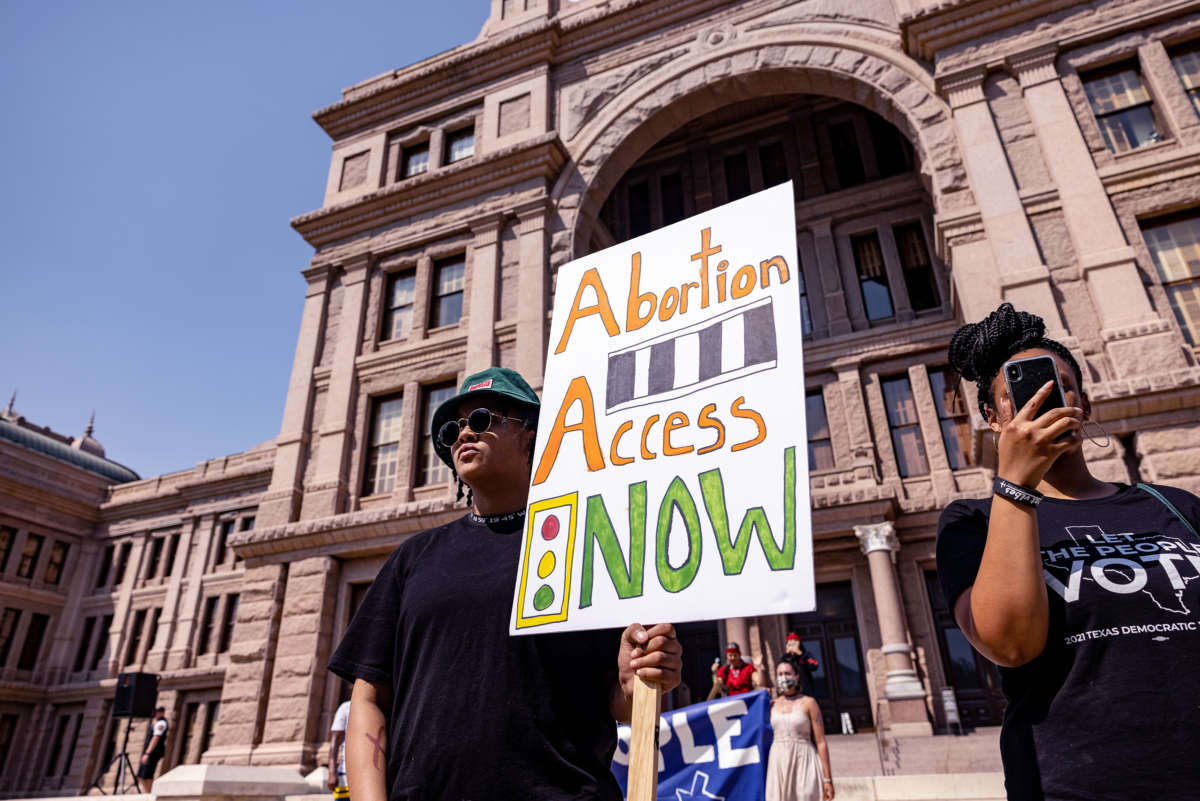The Department of Justice (DOJ) has requested that a federal judge impose an injunction on the enforcement of an abortion law in Texas until a lawsuit from the federal government that is challenging the statute is resolved.
The Justice Department issued the request Tuesday “to protect the constitutional rights of women in Texas and the sovereign interest of the United States,” the department wrote in its legal filing to Judge Robert L. Pitman of the Western District of Texas, who is also overseeing the lawsuit.
The DOJ alleged in its brief that the Texas law, also known as S.B. 8, is “an unprecedented scheme” meant to avoid judicial review by placing the onus of enforcement on individuals rather than the state itself.
“This attempt to shield a plainly unconstitutional law from review cannot stand,” the DOJ wrote. “The United States seeks a temporary restraining order or a preliminary injunction enjoining the enforcement of S.B. 8.”
The request for injunction comes one week after the DOJ filed a lawsuit seeking to question the constitutionality of the Texas abortion law.
“It is settled constitutional law that ‘a state may not prohibit any woman from making the ultimate decision to terminate her pregnancy before viability,'” the lawsuit states. “But Texas has done just that.”
Pitman, who was nominated to his current judicial post by former President Barack Obama, may honor the request by the Justice Department. However, the state of Texas could appeal any injunction he imposes to the United States Fifth Circuit Court of Appeals, considered to be the most conservative circuit court in the country. If this happens, it is likely to be overturned.
The Texas law, which went into effect on September 1, makes it illegal for any person to obtain an abortion after their sixth week of pregnancy. However, rather than having the state enforce the law, the statute allows individuals to sue others, including clinicians and providers, who knowingly help another person to obtain abortion services for sums of up to $10,000.
Because of this quirk in the law, the Supreme Court refused to hear the case, with the conservative majority ruling that it first needed an aggrieved party filing a contention to it. All three liberal bloc members of the Court, joined by conservative Chief Justice John Roberts, dissented.
“The Court’s order is stunning,” wrote Justice Sonia Sotomayor. “Presented with an application to enjoin a flagrantly unconstitutional law engineered to prohibit women from exercising their constitutional rights and evade judicial scrutiny, a majority of Justices have opted to bury their heads in the sand.”
Join us in defending the truth before it’s too late
The future of independent journalism is uncertain, and the consequences of losing it are too grave to ignore. To ensure Truthout remains safe, strong, and free, we need to raise $31,000 in the next 48 hours. Every dollar raised goes directly toward the costs of producing news you can trust.
Please give what you can — because by supporting us with a tax-deductible donation, you’re not just preserving a source of news, you’re helping to safeguard what’s left of our democracy.
